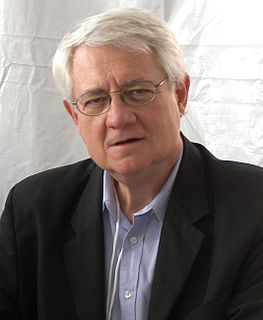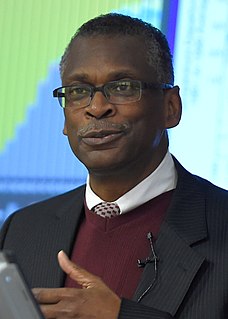A Quote by Gore Vidal
The American high school graduate is two years behind his English, French or German counterpart; in Alabama, God knows how far behind.
Related Quotes
French rhetorical models are too narrow for the English tradition. Most pernicious of French imports is the notion that there is no person behind a text. Is there anything more affected, aggressive, and relentlessly concrete than a Parisan intellectual behind his/her turgid text? The Parisian is a provincial when he pretends to speak for the universe.
When people talk about people being left behind - middle wages have not gone up for years, and we should recognize that, and there I think we need growth and skills - but there are these other people who have been left behind. When I say out loud, "Fifty percent of inner-city schoolkids do not graduate from high school," that is a national catastrophe. We should be ringing the alarm bells. It's not fair.
I'd studied English literature and American history, but the English literature, which I thought was going to be helpful to me in an immediate way, was the opposite. So I had to un-think a lot of things and move out of my own head, and I learned a lot. It was like graduate school, but an un-graduate school or an un-school.
In 1968 when I was in high school I built a four-foot-tall remote control robot with pneumatic cylinders that operated his hands. My robot won first place at a science competition at the University of Alabama where my high school was the only African-American school represented. That was a huge moral victory.
My father stood behind a bar in the back of the room all those years, so one day I could stand behind a podium in the front of a room. That journey, from behind that bar to behind this podium, goes to the essence of the American miracle - that we're exceptional not because we have more rich people here. We're special because dreams that are impossible anywhere else, come true here.
Do you know how much energy, how many powers, how many forces, are still lurking behind that frame of yours? What scientist has known all that is in man? Millions of years have passed since man came here, and yet but one infinitesimal part of his powers has been manifested. Therefore, you must not say that you are weak. How do you know what possibilities lie behind that degradation on the surface? You know but little of that which is within you. For behind you is the ocean of infinite power and blessedness.
There is no English equivalent for the French word flâneur. Cassell's dictionary defines flâneur as a stroller, saunterer, drifter but none of these terms seems quite accurate. There is no English equivalent for the term, just as there is no Anglo-Saxon counterpart of that essentially Gallic individual, the deliberately aimless pedestrian, unencumbered by any obligation or sense of urgency, who, being French and therefore frugal, wastes nothing, including his time which he spends with the leisurely discrimination of a gourmet, savoring the multiple flavors of his city.






































